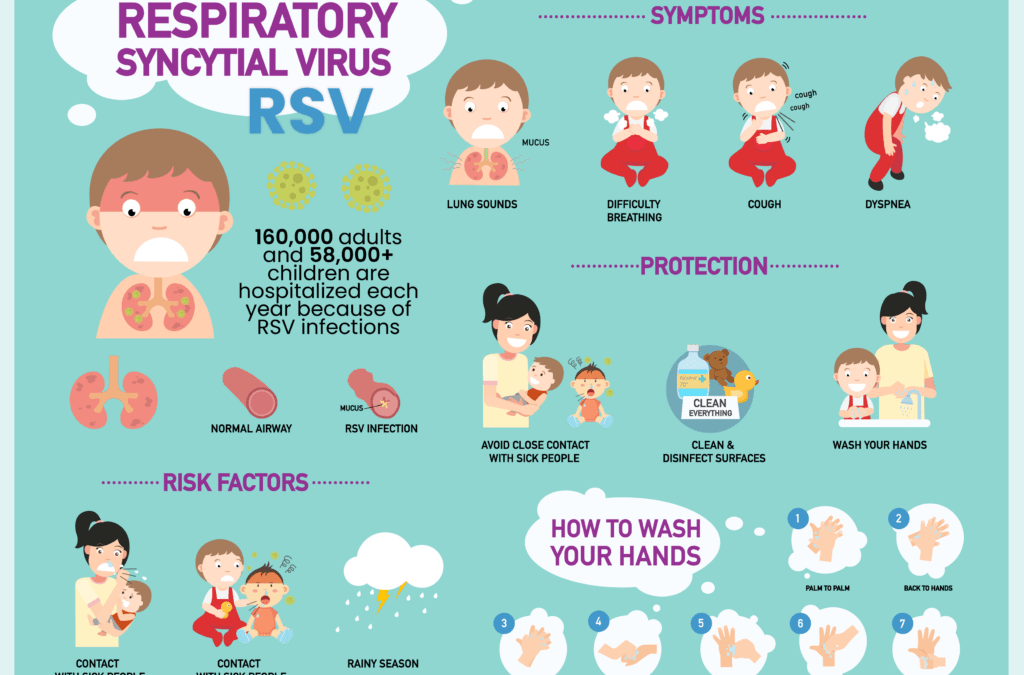RSV is the most common cause of hospitalization in children under the age of 1. Two to three out of every 100 infants in the US with RSV infection may require a hospital stay. Those babies may need oxygen to help with breathing or (intravenous) IV fluids if they are not eating or drinking.
Common symptoms of RSV are the same as other viruses. They may have a fever 101 or higher, cough, and lots of nasal and oral secretions which can often times be very thick causing children to even choke on their phlegm (this is very characteristic of RSV). Additional symptoms include nasal congestion, runny nose, sneezing, fussiness, poor eating/feeding, irritability and restlessness. Due to the thick mucus, children under the age of 1, can have more difficulty with RSV. The thick mucus can get trapped in the bronchioles causing difficulty breathing, wheezing and often hospitalization.
The treatment for RSV is symptomatic. We treat fevers with Tylenol and Motrin, try to keep them well hydrated and often times the infant will have difficulty feeding which will require smaller more frequent bottles/breast feedings. Nasal saline is used to help thin nasal secretions and nasal suctioning can help clear the nasal passages. Call your pediatrician immediately if the child’s fever is not responding to Tylenol and Motrin, or the child has continued wheezing, retractions (chest or sternum sinking in with breathing), not feeding or drinking and is not making wet diapers.
Follow the precautions below to help prevent RSV and other viruses during viral season.
1. Good handwashing- antibacterial soap, warm water, lathering for at least 10-15 seconds
2. Staying within 3 ft from other people
3. Avoid crowded spaces/areas
4. If you are immunocompromised stay home as much as possible
For more information on RSV refer to HealthyChildren.org.

